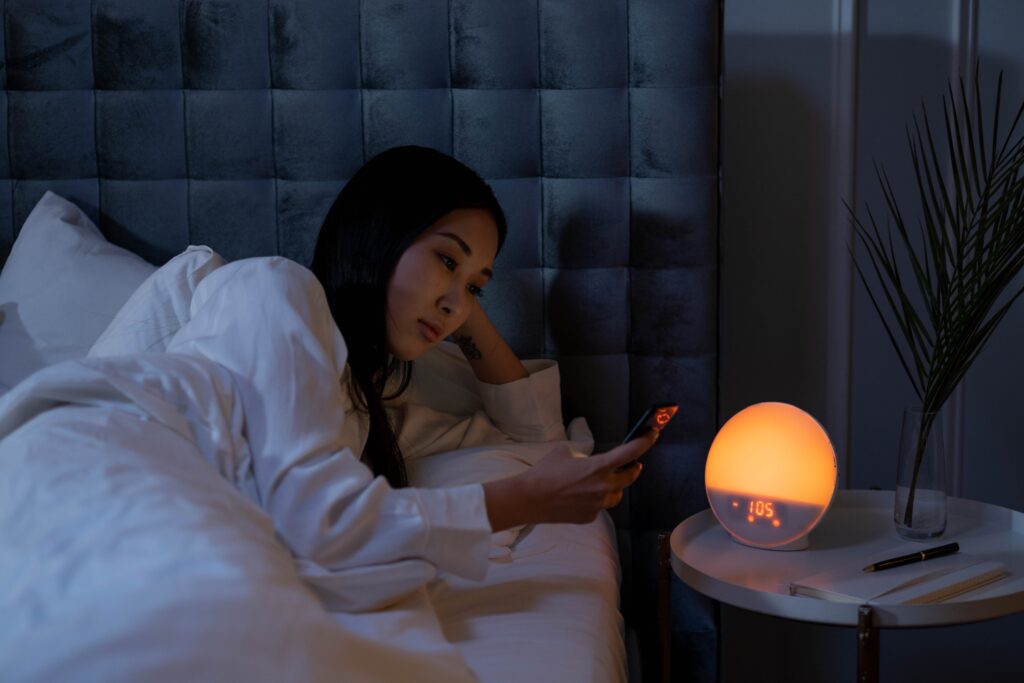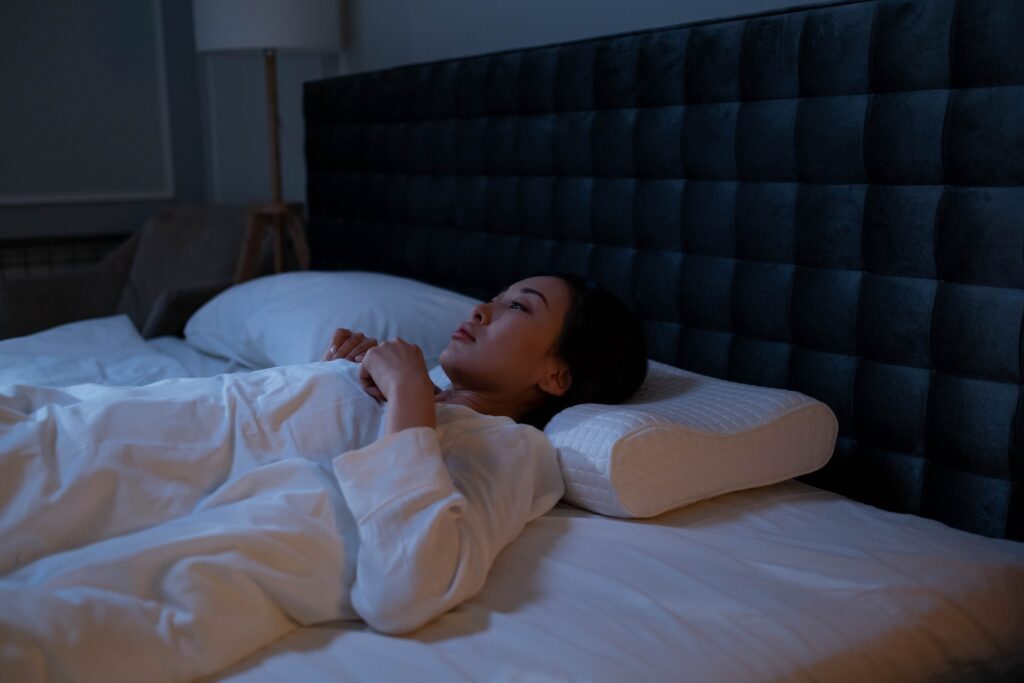In a 2021 PwC survey, 57% of respondents reported a boost in performance and productivity when working from home. It’s no surprise then that 43% of business leaders surveyed have plans to offer hybrid arrangements permanently.
This is a good time to contemplate its effect on our physical and mental wellbeing. After all, remote work has taken a toll on an essential yet often overlooked need—sleep.
In an interview with sleep researcher and psychologist Dr Stijn Massar, he shares how we can improve sleep quality while working remotely.
How essential is sleep?

A lack of sleep impacts our attention, motivation, and emotions. Quality sleep, on the other hand, keeps us alert during the day by enhancing our learning and memory functions. People who suffer from insomnia often show signs of depression or exacerbated mental health conditions. It also increases the risks of weight gain and heart complications.
Most young adults require between seven to nine hours of sleep to feel rested, but improving sleep quality is just as important, says Dr Stijn:
“Part of good sleep is also how well it can be guarded against external disturbance such as light, noise, or other alerting factors.”
How remote work affects sleep

People slept later and longer when they worked remotely during the pandemic, noted Dr Stijn, thanks to the newfound flexibility and commuting time saved. Some were even able to take naps during the day.
If so, why are people worldwide reporting “more restless and disturbed sleep”?
1. Loss of routines
“The pandemic has thrown us off our normal routines quite drastically,” Dr Stijn explains. “This has had an impact on all aspects of life, including social interaction, physical activity, and sleep.”
Stress releases cortisol that keeps us alert but also suppresses the production of melatonin—a hormone that tells us it is time for bed.
This makes it harder to fall asleep. When we do eventually, we tend to experience low-quality sleep that is short and fragmented.
According to Dr Stijn, during the first year of the pandemic, “many people have experienced increased workload, and added load from childcare during home-based learning. Later sleep times are also related to people having to finish their work later after hours when they had the time to do so.”
The radical shift to remote work hit us without warning in 2020. Now that we are prepared for the new normal, we can plan our schedules more intentionally.
2. Blurred boundaries between work and rest
The commute to and from work used helps establish clear distinctions between work and personal life. Without it, detaching from our to-do lists becomes difficult.
Working from spaces for relaxation, such as our couches or bedrooms, also affects sleep negatively.
At bedtime, our minds get easily distracted by stressful thoughts about work. From being stuck to our screens during the day to revenge bedtime procrastination at night, excessive screen time and blue light also stumped the production of melatonin.
3. Lack of movement and sunshine
Apart from commuting, our walks at lunchtime and trips to the office pantry or toilets are used to facilitate daily routines.
With remote work, we lose natural opportunities for physical movement and exposure to sunlight—a natural time cue our circadian rhythm uses to regulate bedtimes.
This leaves us fatigued but sleepless with an uncooperative body clock.
Was remote work a blessing in disguise for night owls, then? Well, not really.
While most of them have an evening chronotype and are more productive at night, there’s a risk of delaying bedtime so much that sleep becomes misaligned with the natural light-dark cycle.
“(Delaying bedtime) is not preferable as most of our body processes are tuned to being active in the day and rest during the night”.
3 ways to improve sleep quality

Pandemic-induced stress may have eased, but there are helpful sleeping habits we can take away from this ordeal.
Dr Stijn shares how you can improve sleep quality in the new normal.
1. Commit to a sleep routine
Make a habit of waking up and going to bed at fixed timings as you would in pre-pandemic times.
It may be tempting to sleep in or stay up, but deliberately maintaining your circadian rhythm can improve sleep quality.
Practise good sleep hygiene by dimming the lamp around bedtime and steering clear of blue light. Don’t forget to call on the angel of your sleeping habits.
2. Make it a point to stay active
Since there are fewer natural opportunities for movement, make exercise a priority in your schedule.
If you are up early, take a walk in the park. Instead of ordering in at lunchtime, a leisurely walk makes a good mid-day reset.
While working out at home is convenient, some sunlight helps keep your circadian rhythm in tune.
Stanford neuroscientist Andrew D. Huberman recommends exposure to direct sunlight in the first 30 minutes after waking up. This reinforces the sleep-wake cycle, especially for workers who are cooped indoors for the rest of the day.
3. Draw the line between work and rest
To demarcate the boundary between work and rest, introduce a wind-down routine every night.
Ample me-time to practise self-care helps to prevent overworking and reduce the need for revenge bedtime procrastination.
If space allows it, keep work and sleep zones apart. Otherwise, make it a rule to work at your desk to create some semblance of separation and improve sleep quality at night.
Inviting as your sheets may be, associating your bed with the act of replying emails is unhelpful for sleep.
Improve sleep quality with professional help

“Sleep becomes a disorder when you cannot sleep when you need to, or you cannot stay awake when you need to, which affects your normal daytime functioning,” warns Dr Stijn.
When sleep difficulties escalate, they can no longer be resolved with simple tips. You can visit a polyclinic for a referral or go to a sleep clinic directly for urgent diagnosis and treatment.
Let remote work improve sleep quality, not sabotage it
“A good laugh and a long sleep are the two best cures for anything” — Irish Proverb.
Sleep is one of the most natural things we do. But as the world strives for 24 hours uptime, many of us have ignored our need for rest.
The flexibility of remote work can work for rather than against us—if only we intentionally honour our innate need for it.






